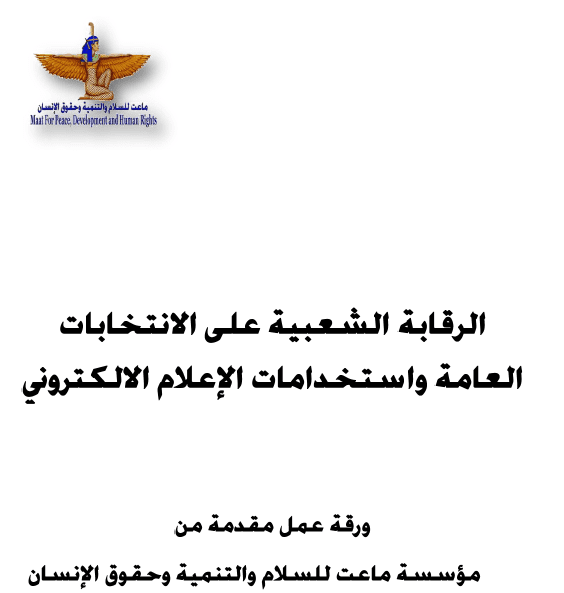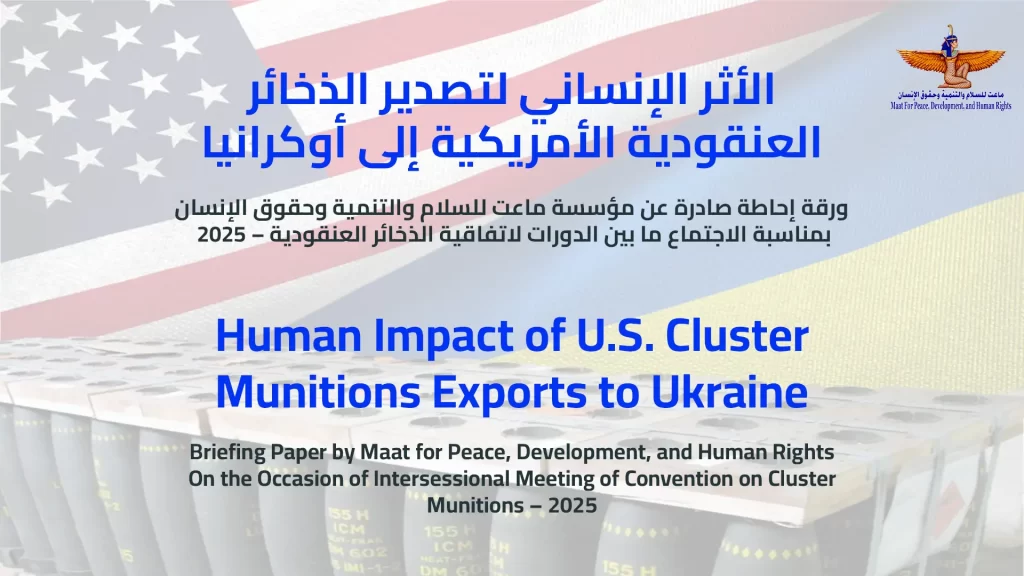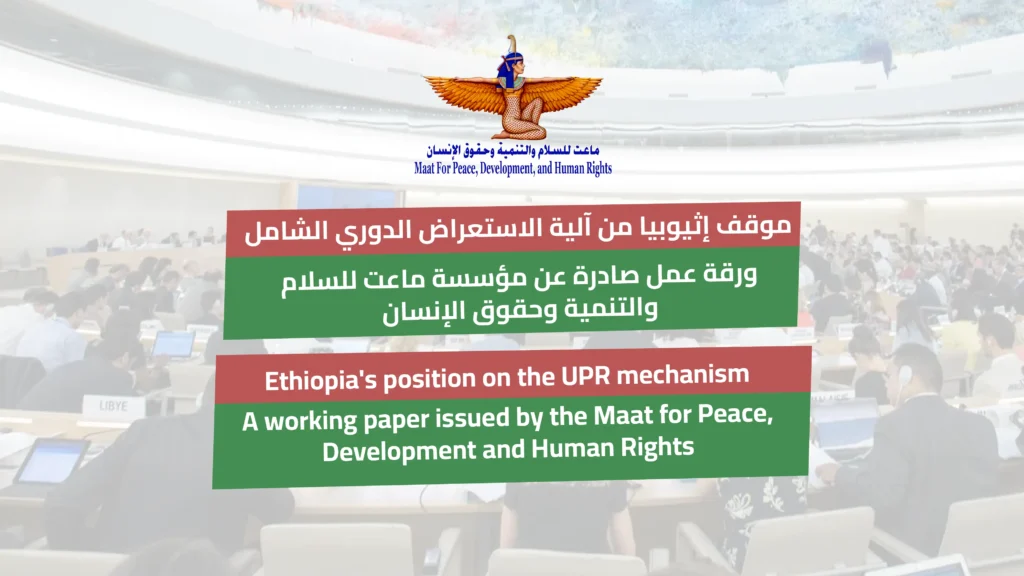Introduction
Elections are the means for democratic societies to establish or replace systems of government as a mechanism aimed at ensuring popular participation and representing the existing system of the desires and orientations of its societal forces. Hence, the system remains in place and officials remain in their seats exercising their powers and implementing their plans and programs aimed at ensuring continued communication with citizens in general and voters in particular. .
During the past few years, and as a natural result of the state of political and societal movement, many initiatives have emerged aimed at supporting popular participation and restoring the masses as a genuine party in the political reform equation, which are initiatives that civil society organizations have played a not simple role in their development and building on and their struggle to create a reality that recognizes these organizations to participate in the discussion. Development projects, drafting amendments to laws, and monitoring tools for democratic practice to measure the extent of its commitment to standards of impartiality, integrity and transparency approved by international covenants and covenants.
Monitoring general elections in any democratic society is one of the most important guarantees that the Constitution and the law place in the hands of the Electoral Commission, embodying the constitutional principle (the people are the owners of power and its source). This constitutional and legal authority is exercised by the electoral college indirectly through administrative, judicial and popular bodies and institutions in accordance with the provisions of the constitution and laws. Issued by the legislative authority and the organizational decisions issued by the competent authorities in accordance with the powers that it authorizes, and in order for monitoring to be expressive of the electoral authority’s interest, it must be based on legal legitimacy and aim to ensure equal rights for all voters and equal opportunities among all partisan and independent candidates and to prevent violations and abuses of the provisions of the law. Its primary goal makes it possible to achieve fair and fair elections, regardless of who wins.
Monitoring includes official supervision and follow-up operations carried out by one of the government agencies responsible for audits, in addition to monitoring the process by political parties, the media, as well as NGOs and voters in their individual capacity, which is the essence of popular oversight.
There has also been a lot of talk in recent times about citizen monitoring, along with the media and civil society organizations, of the electoral process
As they are the most neutral parties that have no interest in misleading the electoral process in favor of one party over the other, popular monitoring of elections is an indication of a growing democratic community awareness and concern for the integrity of the democratic experiment, and the importance of this study lies in several points that can be presented as follows:
- Because popular participation is important in the political life of peoples, it represents the essence of the democratic process that peoples strive to achieve.
- With popular participation, the constitutional principle (that the people is the owner and source of power) is realized, and it is a genuine constitutional principle.
- Popular participation in election administration is important in terms of participation in electoral decision-making at all levels, and then political decision-making, given that political systems derive their legitimacy from elections.
We will address in that paper two important axes:
First: Defining popular censorship, its importance, forms and justifications for its existence, as well as the obstacles it faces and the role of civil society in supporting it.
As for the second axis, it deals with the importance of the electronic media role as a primary observer of the electoral process, while reviewing international experiences about its role in mobilizing, supporting and monitoring the electoral process.
shortlink: https://maatpeace.org/en/?p=32054












